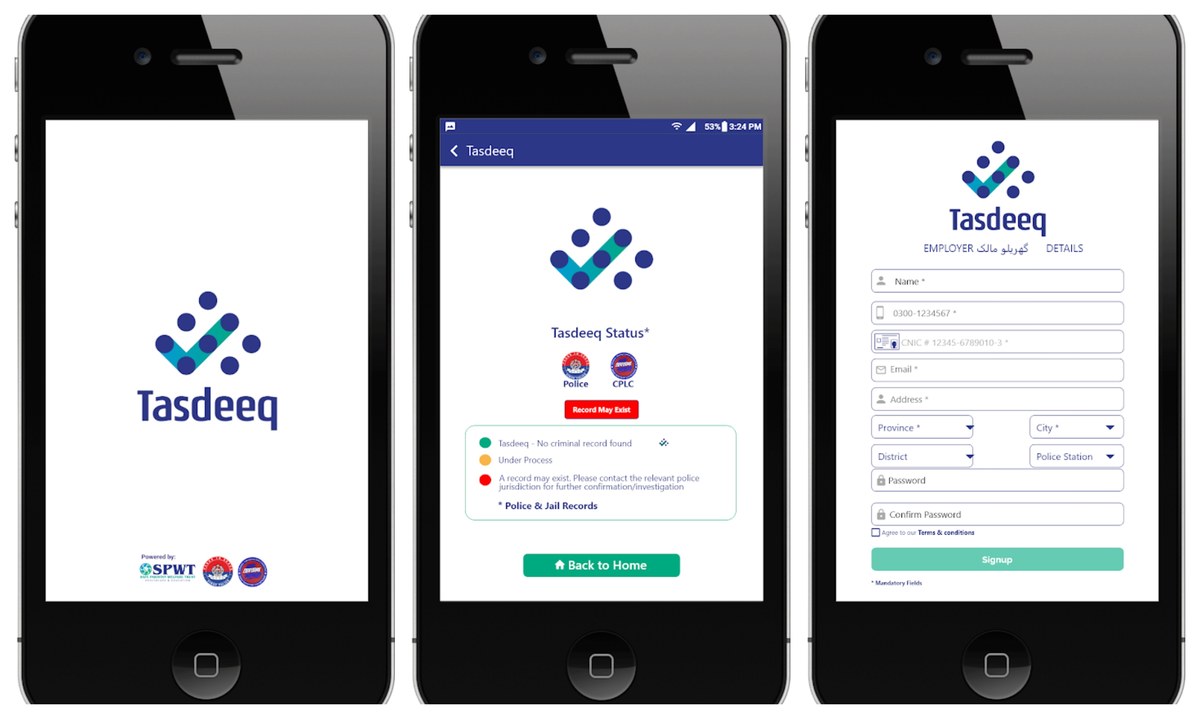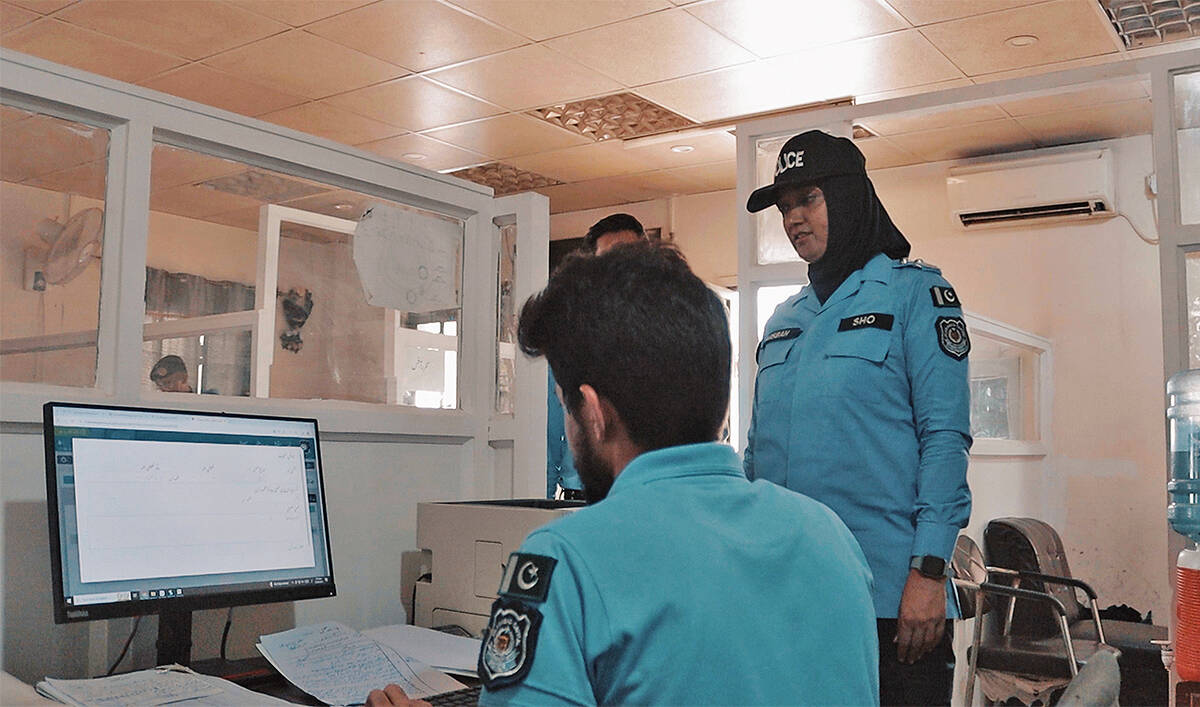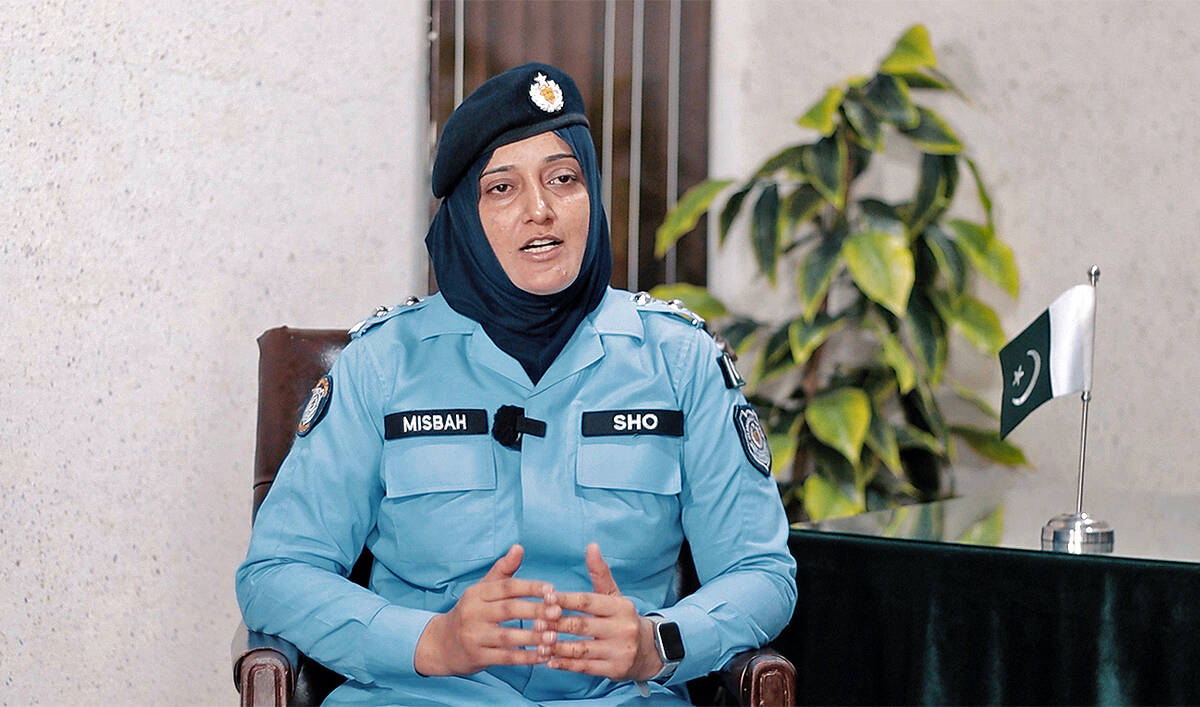KARACHI: Last November, Laeeq Akbar decided to use an app called Tasdeeq to background check a new employee she was hiring at a spa she runs in an upmarket neighborhood in Pakistan’s financial hub of Karachi.
It turned out the man had a criminal record and had been involved in a series of muggings.
“Technology helped me save myself from falling prey to a criminal at my workplace,” Akbar told Arab News, saying the man she almost hired had a record of robbing commuters at traffic signals at night while working for various employers.
“We are relieved to have this digital vetting,” she said.
The Safe Pakistan Welfare Trust, which launched Tasdeeq in collaboration with Karachi’s Citizens-Police Liaison Committee (CPLC) and police last August, aims to bring over 50 million blue-collar workers out of poverty, its founders said.
In December, the campaign went nationwide with a launch event inaugurated by interior minister Sheikh Rasheed Ahmad in Islamabad. The Trust has also signed a memorandum of understanding with the Ministry of Economic Affairs Division of the government of Pakistan.
Around 61,230 people have downloaded the application since its launch, of which 11,784 users are from Karachi’s south district. Around 21,766 workers are registered, and 602 people with criminal records have been identified through the app.

This combination of photos taken on 12 February 2021 shows the interface of a mobile app called Tasdeeq, launched by the Safe Pakistan Welfare Trust in collaboration with Karachi’s Citizens-Police Liaison Committee (CPLC) and police to check the background of new domestic staff in Pakistan. (Photo courtesy: Tasdeeq)
The app is already being used in the provinces of Sindh, Punjab and Balochistan as well as the capital, Islamabad, and the Trust plans to sign agreements with authorities in the Khyber Pakhtunkhwa province, as well as Azad Kashmir and Gilgit-Baltistan.
“The next phase will engage employers to work toward poverty alleviation,” Asfandyar Janjua, co-founder of the Trust, told Arab News.
“Tasdeeq Pakistan is a multiphase, multipronged social impact initiative, which aims to change on one hand the way domestic worker and blue-collar labor are hired, and on the other, through education and advocacy, work toward the economic uplift and poverty alleviation of the hard working and honest domestic workers and blue-collar labor,” the app said on its website. “Technology would be leveraged to help ... them break the vicious cycle of poverty.”
Registered workers under Tasdeeq have verifiable work histories and in return get hospital and accidental insurance and funds for their children’s education from employers, and emergency and micro loans from financial institutions.
The app’s website cites police as saying “60% of robberies, banditry, kidnapping and murders are carried out directly or indirectly through active involvement of inside workers.”
In November last year, police said they killed five robbers in Karachi’s affluent DHA area following reports of rising burglaries. The robbers, police said, were allegedly part of a notorious gang that carried out crimes in upscale neighborhoods with the help of domestic help.
“We’ve found many cases of thefts involving domestic servants, and in most of these cases, either identity cards are fake or were not available because they weren’t verified before hiring,” Deputy Inspector General of police Javed Akbar told Arab News, saying apps like Tasdeeq would help minimize crime.
Atif Bin Arif, the founder of MyGHAR, a housing solution for working professionals and students, said the Tasdeeq app had helped him vet job candidates.
“We vetted some of our incoming applications and as they were flagged by the police and CPLC in real-time, it helped us take immediate action,” Arif said.
Ahmed Rehan, who runs an Islamabad-based security company, also said he had used Tasdeeq to verify new employees.
“In the past, we had to send a resource to the police station for verification, which was a cumbersome exercise,” he said, “but now we enter the CNIC number and get complete data in real time.”

















